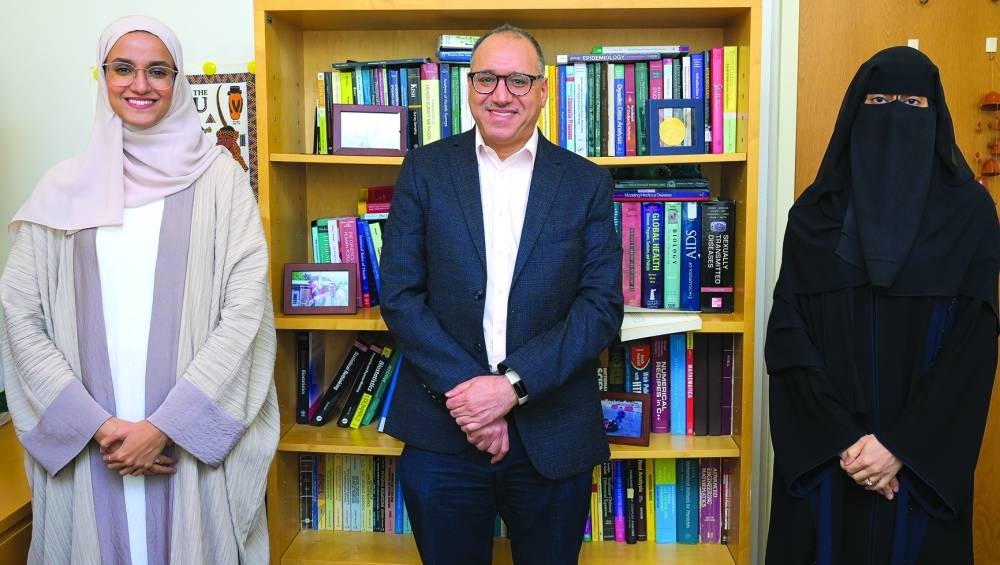A study entitled ‘Epidemiology of herpes simplex virus type 2 in Europe: Systematic review, meta-analyses, and meta-regressions’ by researchers at Weill Cornell Medicine-Qatar (WCM-Q) has been published in the prestigious journal Lancet Regional Health-Europe. The study found that about 10% of the population of Europe is infected with the herpes simplex virus type 2 (HSV-2). HSV-2 prevalence is declining in Europe, but at a relatively slow rate of 1% per year, lower than that in other world regions. The prevalence was more common in women than men.
The study was conducted by the Infectious Disease Epidemiology Group (IDEG) at WCM-Q to address one of the goals of the World Health Organisation’s Global Health Sector Strategy on Sexually Transmitted Infections. The study provided the first such detailed description of HSV-2 epidemiology in Europe. Asalah Alareeki, joint first author of the study and researcher at IDEG, stated: “We applied rigourous methodologies to assess the epidemiology of HSV-2 in Europe and found that HSV-2 prevalence in the adult population of Europe averaged at about 12%, but this prevalence has been declining at a rate of 1% per year over the last three decades. Despite the declining sexual transmission of this infection, there was an increasing trend of neonatal herpes of mothers transmitting herpes infections to their newborns.”
HSV-2 infection is a globally prevalent sexually transmitted infection. Although asymptomatic in most people, it can cause a range of symptoms and adverse health outcomes, such as recurrent painful genital ulcers and serious neonatal infections. HSV-2 infection is linked to increased risk of acquiring and transmitting HIV infection.
Aisha Osman, joint first author of the study and researcher at IDEG, said: “We found that one-fifth of genital ulcer disease cases and two-thirds of genital herpes cases were caused by HSV-2 infection. Our findings call for implementation of preventive and control measures to tackle this infection by 2030 and achieve the main goals of the WHO’s Global Health Sector Strategy on Sexually Transmitted Infections.”
Dr Laith Abu-Raddad, principal investigator of the study and professor of population health sciences at WCM-Q, concluded: “Despite the large disease burden of this infection, we still have no vaccine to tackle its global prevalence. These findings demonstrate the need to accelerate HSV-2 vaccine development.”

Researchers of the study
